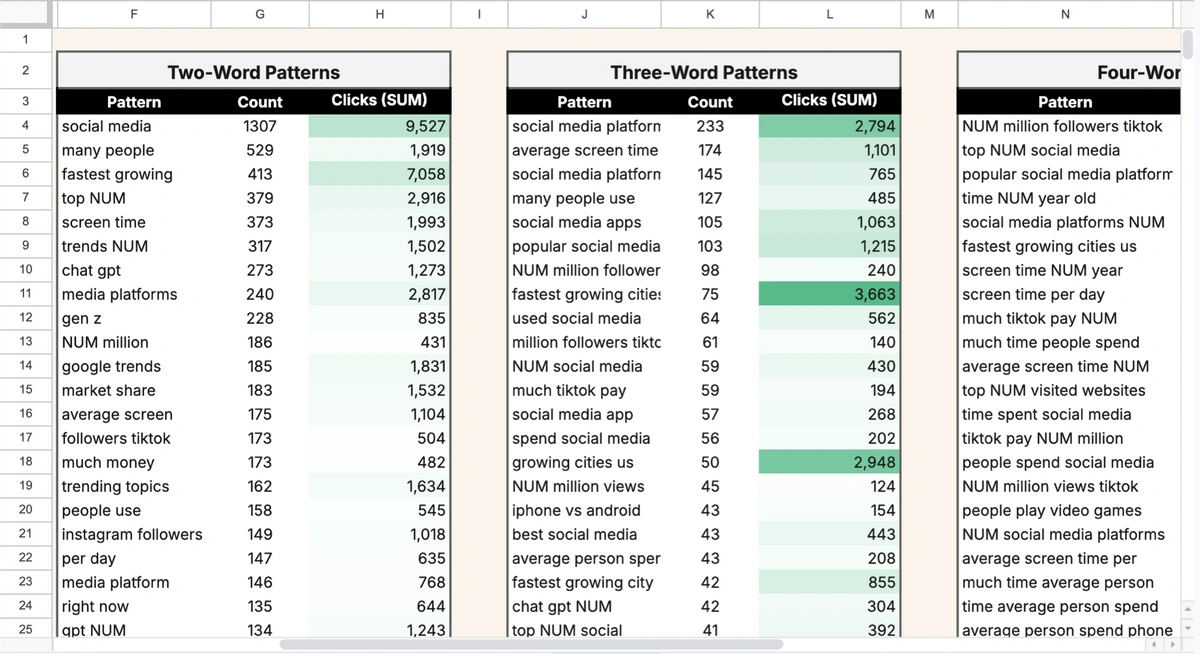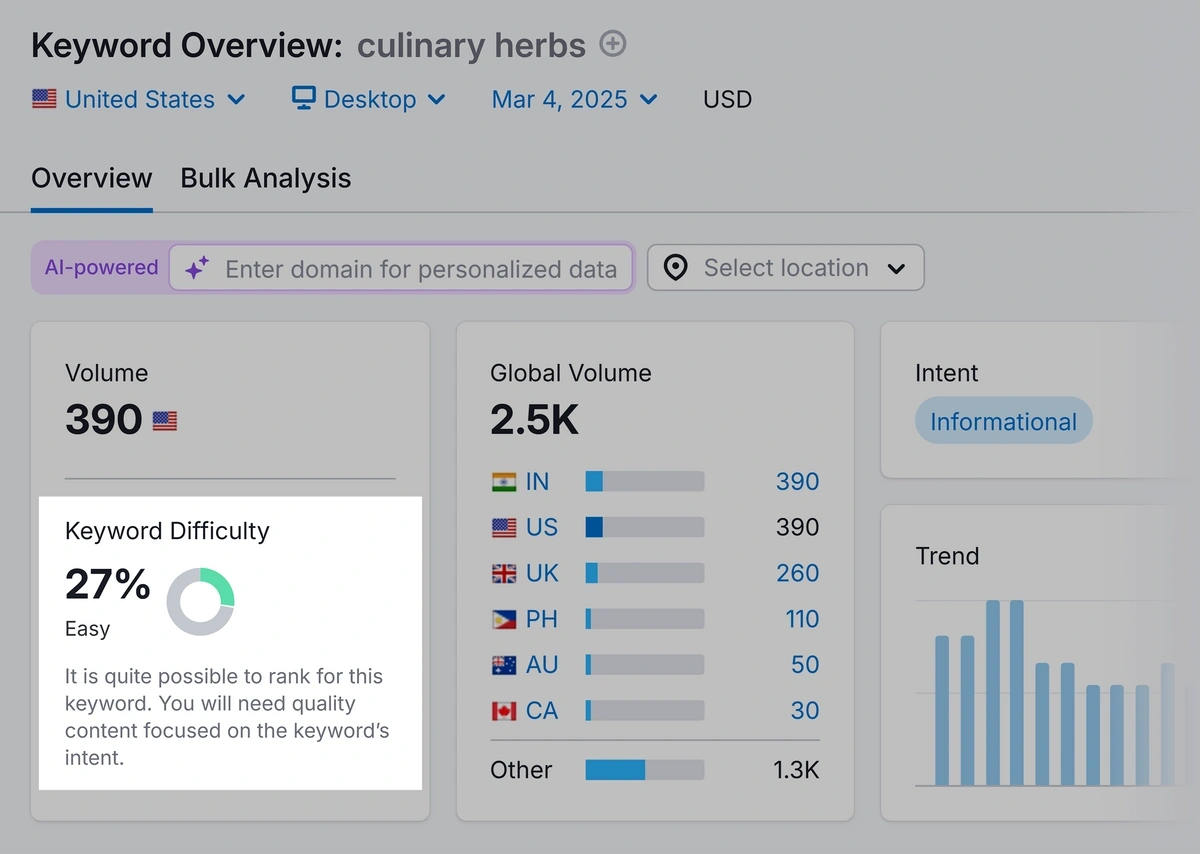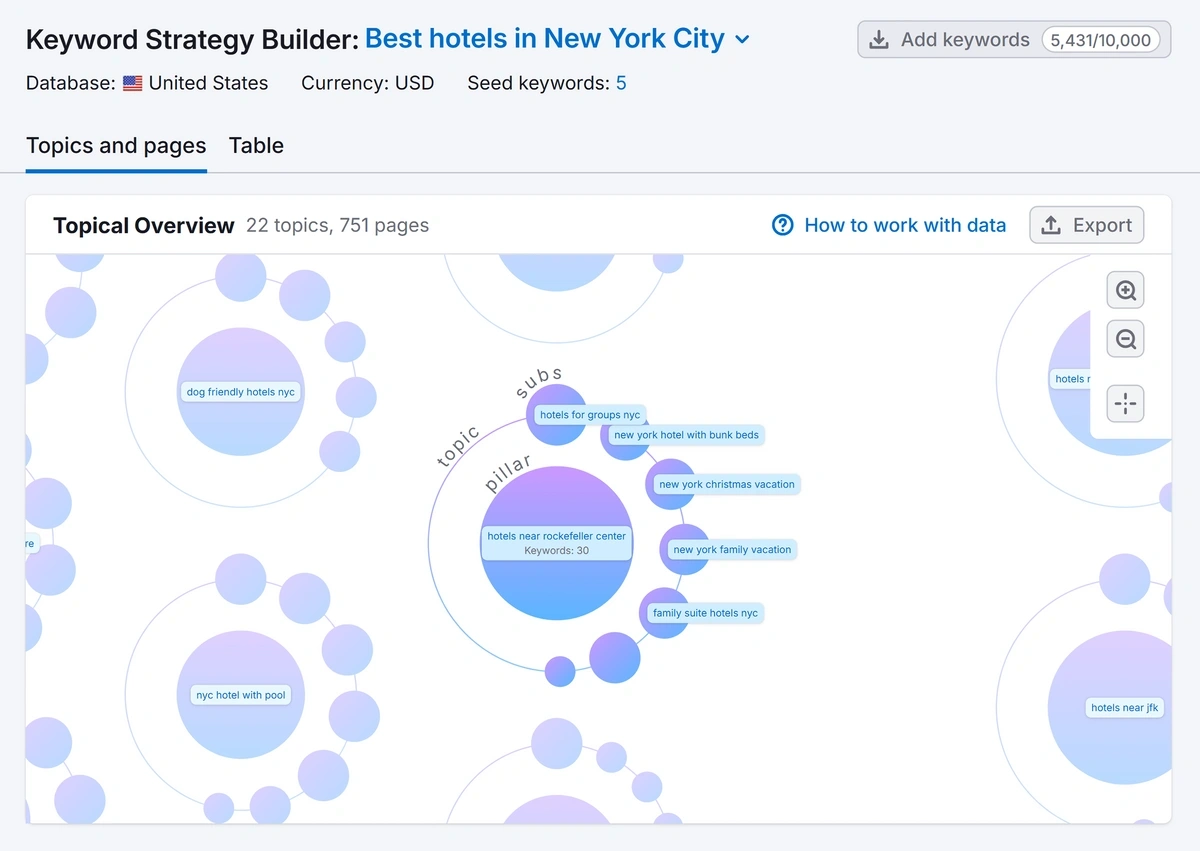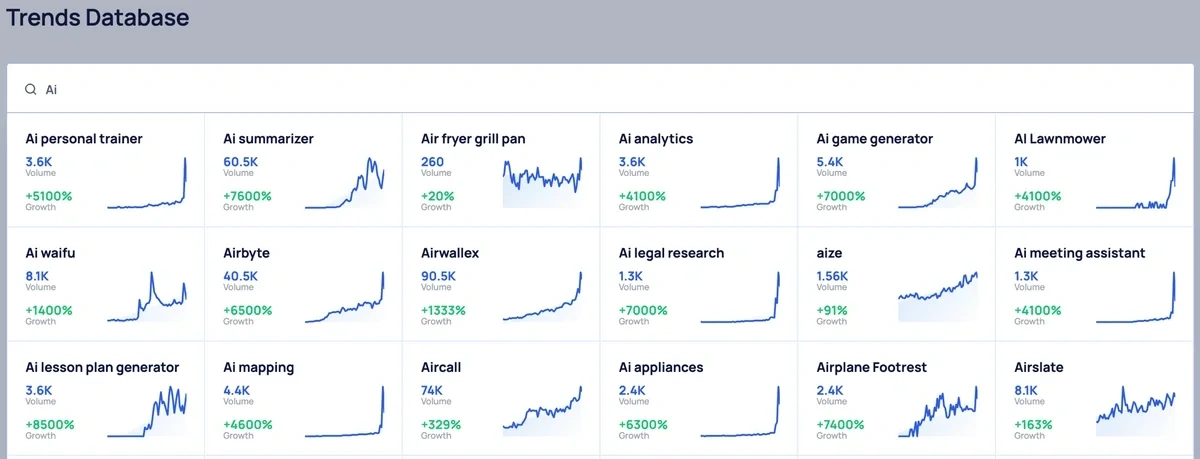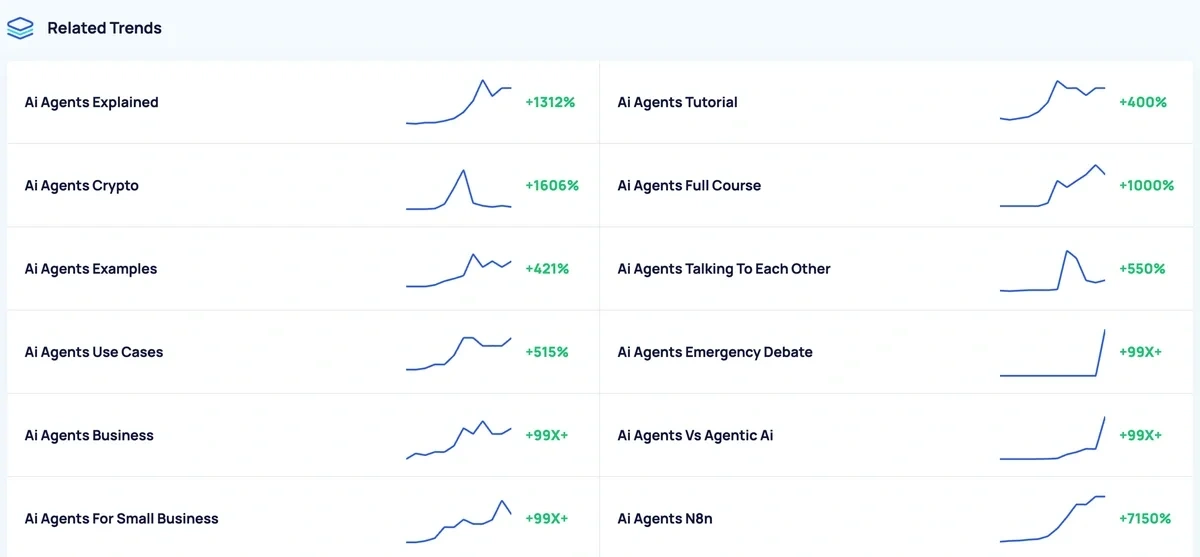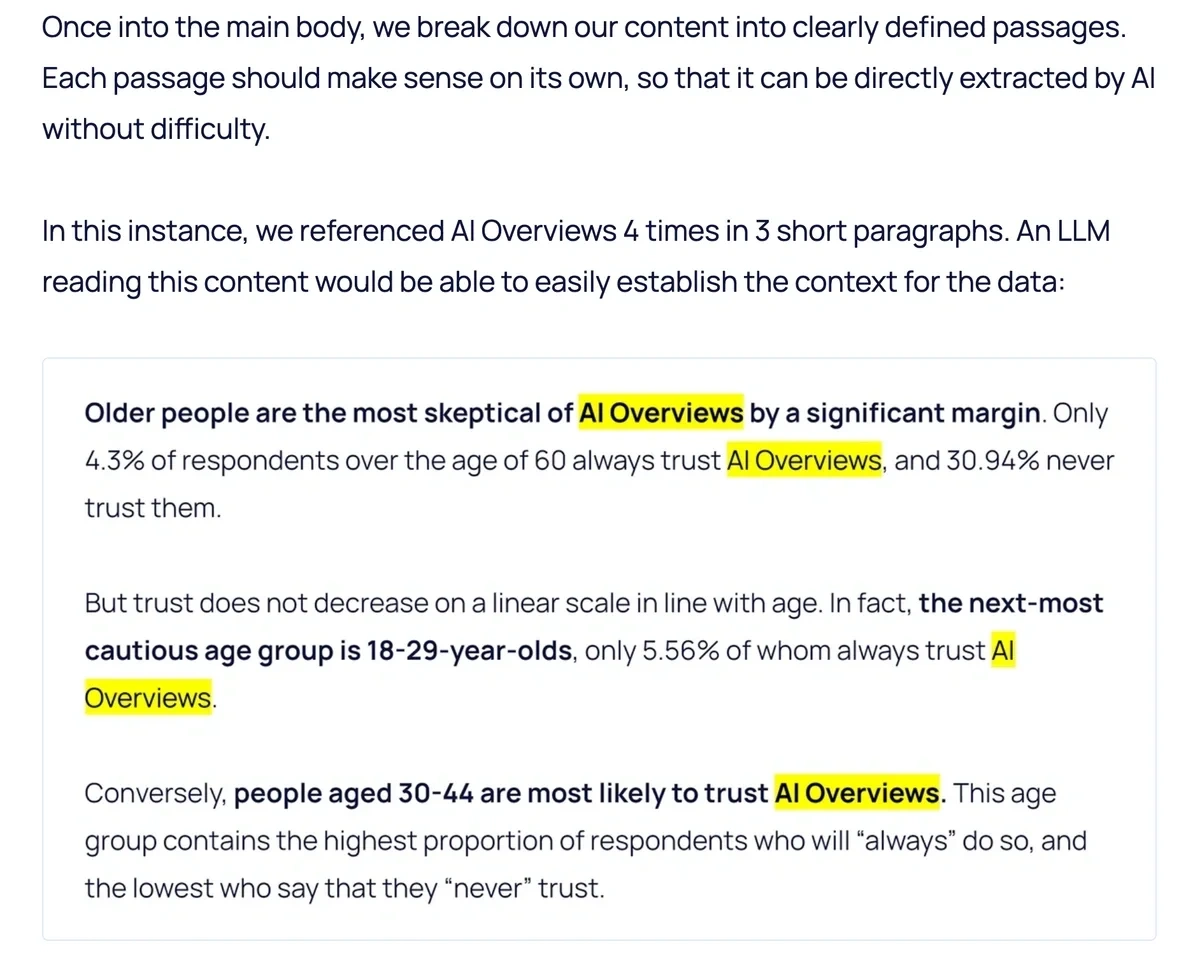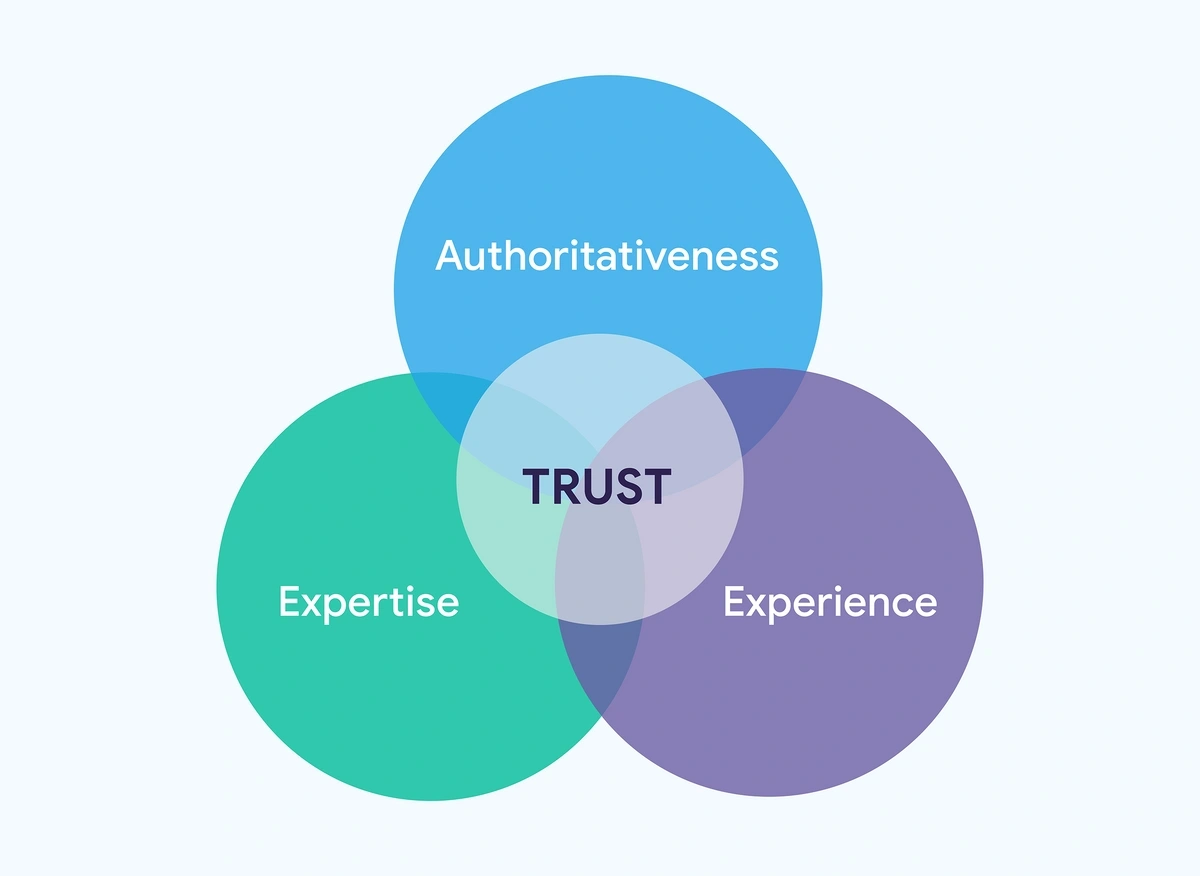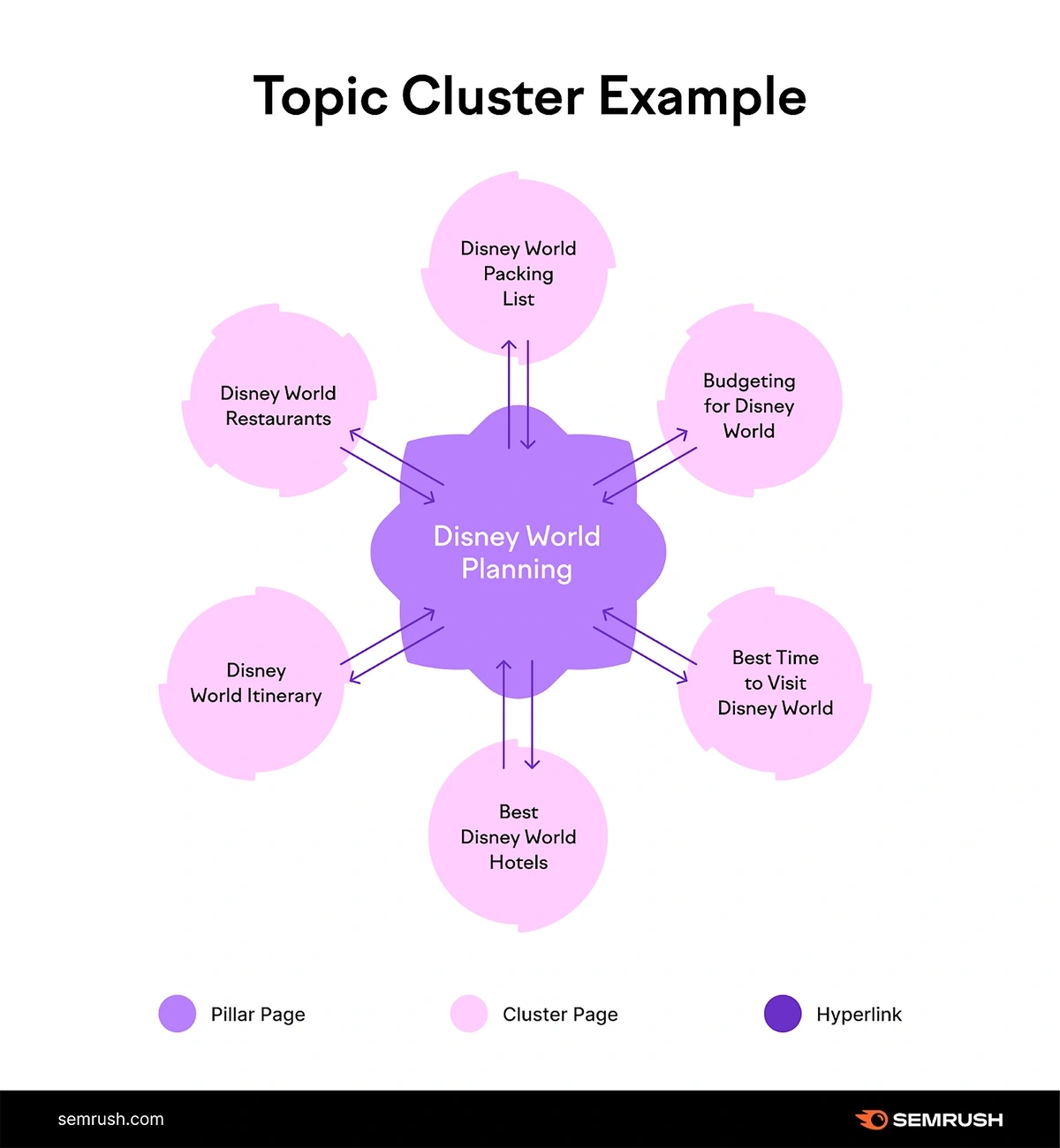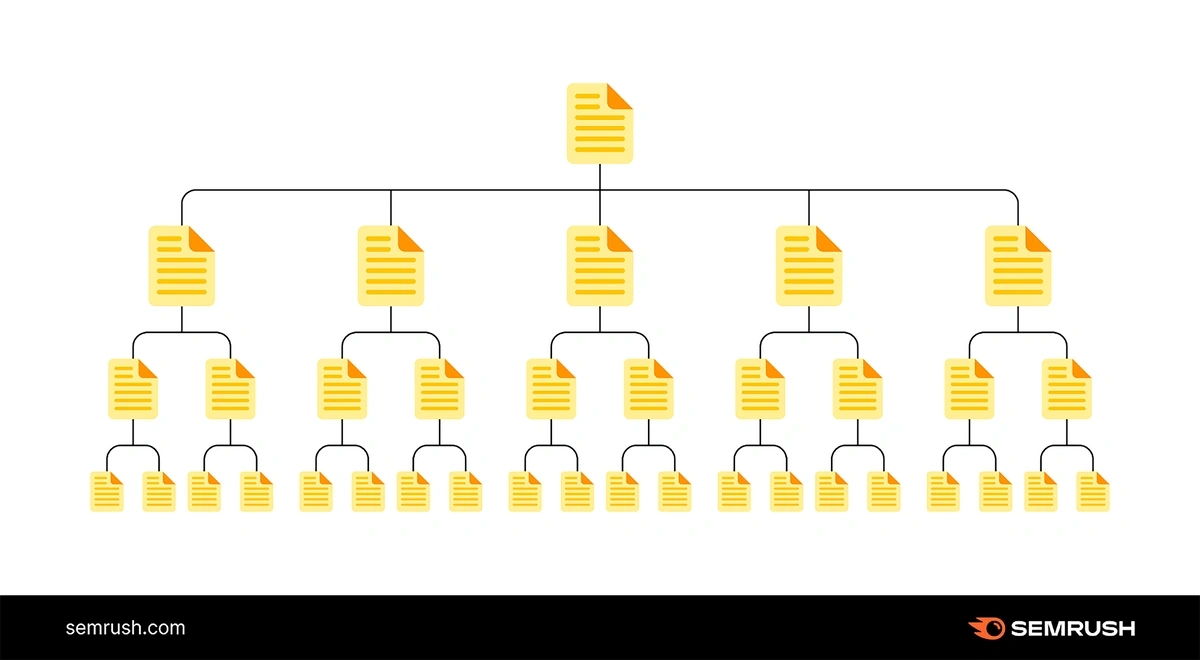Get Advanced Insights on Any Topic
Discover Trends 12+ Months Before Everyone Else
How We Find Trends Before They Take Off
Exploding Topics’ advanced algorithm monitors millions of unstructured data points to spot trends early on.

Keyword Research
Performance Tracking
Competitor Intelligence
Fix Your Site’s SEO Issues in 30 Seconds
Find technical issues blocking search visibility. Get prioritized, actionable fixes in seconds.
Powered by data from
How to Build Topical Authority in 2025 (+Topical Coverage Tool)
Topical authority is the most powerful way to achieve success in search.
Capitalizing on your expertise and providing helpful content ensures that audiences trust your site.
A website with strong topical authority helps users gain insights and solve problems. This is why it will typically rank higher on search engine results, attracting more organic traffic, backlinks, and conversions.
Get More Search Traffic
Use trending keywords to create content your audience craves.
1. Choose the Right Topics to Build Authority Around
The first step is choosing the right topics: topics that your ideal customer is interested in.
Your goal is to create a broad topical surface area. In other words, you want to make sure you have content that answers a broad range of questions.
Begin with some creative thinking and keyword research. Jot down 3-5 broad topics core to your niche that you want to express expertise in.
Expanding Topical Surface Area
If your site already has content that is driving conversions, do they cluster around 1 or 2 themes?
You can review your existing topic clusters using our free topic cluster analysis tool. It pulls information from Google Search Console and organizes terms into topical groups for you.
Your goal should be to expand your topical cluster so you build a single, authoritative hub.
I'll break this down with the two tools I normally use.
How to Build Topical Authority with Semrush
You can use Semrush to find keywords that are relevant to the topics you're known for.
The Semrush SEO toolkit can help you to conduct completely bespoke keyword research.
For example, imagine you own an online store that sells gardening kits.
Although you offer kits to help your customers start vegetable and flower gardens, your indoor culinary herb kits are the most popular. So are the related blog posts on herbs.
Using the Semrush Keyword Overview, you see that “culinary herbs” has a Keyword Difficulty score of “Easy.” So, you choose this as your first area of topical authority.
Because you want to build topical authority, you don't want to create one page here. Instead, you want to build a complete topical hub.
Instead of focusing on one keyword, you could create a separate page for each culinary herb or develop content explaining how they're used in recipes.
Remember that you don't need to use every page of a topical hub to market your product directly. Instead, you want to create a resource that your target audience finds valuable.
To find topical hub ideas related to your core topic, try the Semrush Keyword Magic Tool.
For our example topic, Semrush returned these ideas:
- Culinary herb garden
- Culinary herb identification
- How to grow culinary herbs
I can save the ideas to the Keyword Strategy Builder to organize them into a content plan.
Here's an example for a travel website that wants to build topical authority around a specific location:
How to Build Topical Authority with Exploding Topics
To build topical authority quickly, use Exploding Topics to find trending topics in your niche.
Remember: to build topical authority, relevance is key. You need topics that are growing, but also linked to your core specialisms.
You can use Exploding Topics to discover these.
Imagine you’re consulting with an individual who wants to build a subscriber-based newsletter on AI trends.
In the Trends Database, a quick search for “AI” reveals hundreds of AI-related topics along with a chart showing their recent search trends:
Selecting a trend shows me a breakdown of related topics.
I can quickly build a content plan around these to build topical authority. To grow traffic quickly, I can focus on the ones that are trending up:
2. Provide Information Gain
Information gain means including something unique and valuable that only an expert would be able to explain.
Information gain is a key concept in this Google patent, which says, “An information gain score for a given document is indicative of additional information that is included in the document beyond information contained in documents that were previously viewed by the user.”
In other words, your content has to be better than everyone else’s. If your page is just “as good as” top-ranking content, Google has no incentive to put you on page 1.
The factors that distinguish your content can range from small to significant.
For instance, information gain could come from:
- Original data, research, theories, or insights
- First-hand experience or interviews
- Clarity from definitions, in contested ideas, and in recommendations
- People Also Ask data in search results
Claude Shannon, an American mathematician who laid the groundwork for information theory, once said, “Information is surprise.”
Applying Shannon's idea to marketing, we can assert: High information value, as perceived by Google and readers, depends on how unexpected it is.
If your SEO copywriting strategy becomes formulaic, you’ll lose the ability to provide the element of “surprise”; information your reader has never seen before.
Our AI Visibility Guide includes unique information about how we increased our AI mentions and citations. James wrote up his exact writing process.
It's a great example of a piece that includes insights that only an expert could provide. And, crucially, it's not copied from any other resource:
Note that an article with superior information gain does not necessarily need to be longer than competing articles. It simply needs to contain additional, valuable information.
For a deep dive with examples, I recommend reading our guide on adding information gain to blog articles.
3. Use EEAT
Showing EEAT in your topical authority content is essential. EEAT stands for Experience, Expertise, Authoritativeness, and Trust.
EEAT is important because readers need to trust you to make a purchase, which is why we placed 'Trust' at the center.
You can increase the “experience” in EEAT by:
- Commissioning experts, specialists, and those with first-hand experience to write for your site
- Have your writers incorporate original quotes from such individuals
- Include comments from your own customers or in-house team
To get original quotes from those with expertise, do a quick Q&A via email with them. You can either publish this as a sidebar or pepper in the quotes throughout the article.
4. Use Good SEO Techniques
Good foundational SEO is still important in 2025.
Specifically, be sure to:
- Meet search intent
- Stick to SEO copywriting best practices
- Fact-check your content
- Organize your content in a logical way, both on the page and in your sitemap
Writing about topics means you'll need to cover each subject in detail.
Google is encouraging publishers to use subject-matter experts because they produce the best possible content on the topics they know well.
It's also essential that your expert writers use semantic keywords so Google understands the breadth and quality of the content they publish.
Organizing Content: Topic Clusters and Libraries
Now, let’s look at organizing your content into topic clusters.
Clustering can help you to plan and organize your topical authority content and ensure that your topical surface area is as wide as possible.
Creating Topic Clusters
Topic clusters begin with the creation of a pillar page.
A pillar page covers the keyword that you wish to achieve topical authority in. In our example above, we focused on the keyword “culinary herbs.”
The pillar page connects to various other pages that elaborate on subtopics.
The combined aim of the pillar and subtopic pages is to thoroughly cover your topic.
Cover the topic well, but broadly, in the pillar page. Don’t go into minute detail. Reserve the details for the subtopic pages.
Here’s a diagram of a pillar page linking out to related subtopic pages:
Interlinking: By adding internal links between the pages within your topic cluster, you facilitate discovery for both users and Google, showcasing your extensive content on the subject.
The Library Model
Topic clusters, and even blogs, aren’t the only model for organizing content.
Jimmy Daly of Superpath has an interesting article on how the structure inherent in blogs can lead to shallow coverage of topics. (See “Your Blog Is Not a Publication, but It’s Not Just a Library Either.”)
Shallow coverage will, of course, undermine topical authority.
Daly proposes the library model as a potential alternative to a traditional blog.
“The library model treats your blog as an evergreen resource organized by topic rather than a chronological feed.”
Logic and Ease of Use
You shouldn’t think you’re restricted to using a single model to organize your authority content, though.
You can also combine organizing models, such as deploying topic clusters within a library framework.
However, you choose to organize your content:
- Use logic to organize it
- Make related content easy for users (and Google) to find
- Use internal links and signposts to guide people through topics and subtopics
Google’s Consensus and Debunking Scores
Lastly, it pays to read how Google fights disinformation and to learn about consensus scores and their relationship to ranking.
These scores come into play when choosing the key subjects you want to build topical authority on.
In short, Mark Williams-Cook recently discovered Google code that reveals consensus scores.
(Mark is the author of one of our favorite SEO newsletters.)
It appears Google, when assessing web pages, assigns scores to passages based on whether they agree, contradict, or are neutral compared to consensus views.
The code also tests search queries to detect if the user seeks debunking information.
If the searcher wants information that debunks YMYL-based consensus, it’s likely Google’s search results will seek to counter this by providing results that reiterate the consensus.
It makes sense that Google’s consensus-seeking would bear heavily on YMYL sites.
But Williams-Cook found that for other topics, “Google intentionally tries to have some consensus, some neutral, some non-consensus.”
When thinking about topical authority, there are some lessons to learn:
- Building topical authority via SEO for a non-consensus YMYL site is risky.
- For a non-YMYL site, valuable contrarian views or hypotheses may be the missing element for ranking higher.
Building Topical Authority is a Balancing Act
In 2025, SEO is becoming more complex, and building topical authority is not just about spamming Google with as many pages as possible.
- When creating content around topics, talent and creativity matter more than rules. Remember that your goal is to put yourself in the shoes of your ideal customer and deliver what they need, not what your chosen framework dictates.
- Using AI to generate content without human involvement is a high-risk approach. Google's Quality Rater's Guidelines specifically warn against using AI to generate large amounts of content to rank. The most effective (and safest) method is a hybrid human-AI content process.
- Tracking success is important. Regularly review your topical authority using our free topic cluster analysis tool.
Becoming the go-to resource in your field means going deep, beyond surface-level, but without cutting corners. Do this, and you’ll build lasting assets that outperform, long after the latest SEO trend passes.
Stop Guessing, Start Growing 🚀
Use real-time topic data to create content that resonates and brings results.
Exploding Topics is owned by Semrush. Our mission is to provide accurate data and expert insights on emerging trends. Unless otherwise noted, this page’s content was written by either an employee or a paid contractor of Semrush Inc.
Share
Newsletter Signup
By clicking “Subscribe” you agree to Semrush Privacy Policy and consent to Semrush using your contact data for newsletter purposes
Written By


Sherrie Gossett has a knack for uncovering hidden trends and opportunities that others overlook, drawing on her extensive experien... Read more




